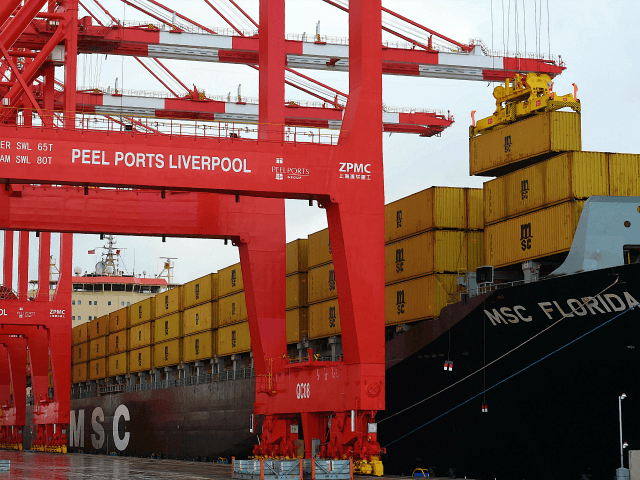The government has said that 2019 was a “record-breaking” year for British exports, with a 13.6 per cent increase in exports to non-EU countries on the year before while the trade deficit with the European Union has widened.
The Department for International Trade has said that the UK has experienced 45 consecutive months of annual export growth on a rolling annual basis.
DIT referenced figures released by the Office for National Statistics on Tuesday, which revealed that trade in export in goods had increased by 6.4 per cent to £372 billion, while the export of services also rose by 3.3 per cent to £317 billion. In total, British companies exported £689 billion worth of goods and services around the world, an increase of five per cent on 2018.
The ONS noted that 2019 on the year before, the trade in goods deficit narrowed with non-EU countries, but widened with EU member-states, with the trade in goods deficit widening with EU countries by £1 billion to £94.5 billion.
“Exports to non-EU countries increased by £24.1 billion in 2019 but were partly offset by a £13.3 billion increase in imports. Imports from EU countries decreased by £0.6 billion in 2019, while exports also decreased by a larger £1.6 billion,” the report said.
The Department for International Trade noted that some of the nation’s fastest-growing goods exports included cereals, meat, and seafood.
The figures will bode well for Brexit Britain as she prepares to sign trade deals with countries around the world, with Secretary of State for International Trade Liz Truss saying: “The UK is an exporting superpower and these new statistics show that UK companies are exporting record levels of goods and services.
“As a newly independent trading nation, we will strike new trade deals with key partners across the world, open up new markets and make it even easier for our businesses to meet global demand.”
With signs of the widening trade deficit with the EU, the bloc’s share of global GDP is decreasing annually, and British businesses’ increased sales to third countries, Brexit Britain is in a stronger negotiating position than Brussels may have wished.
On Wednesday, the European Parliament voted overwhelmingly to back the European Commission’s trade negotiators to make the UK agree to continue to abide by restrictive Brussels regulations as the price of a trade deal. European leaders, fearful of the UK becoming a competitor on their doorstep, also want to be able to punish the UK over perceived contraventions of a proposed trade deal.
If London and Brussels do not agree on a free trade agreement by the end of the transition period in December 2020, the two parties will trade with each other on World Trade Organization rules. Senior Cabinet minister Michael Gove and the Treasury’s Rishi Sunak, who is reportedly set to be the next Chancellor of the Exchequer, have however said that the UK does not need a deal with the EU.
Last week, the UK took an independent seat at the WTO, with initial meetings taking place with countries like Australia and Japan for free trade agreements.

COMMENTS
Please let us know if you're having issues with commenting.